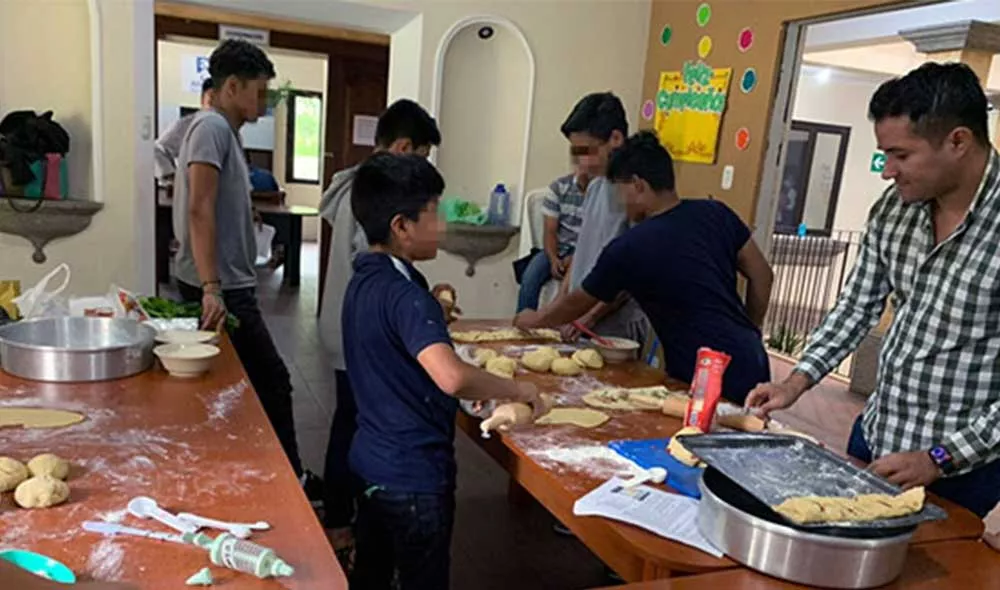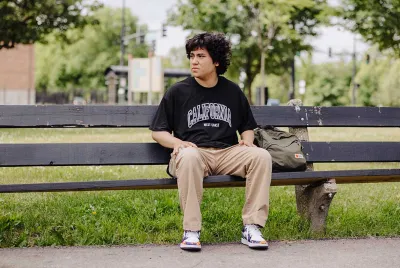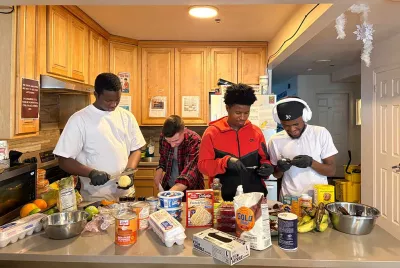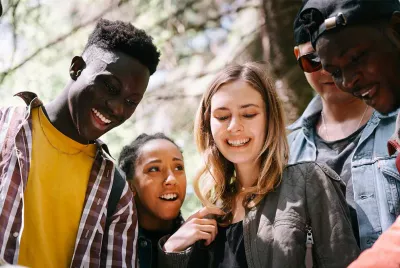From the Shadows

Since Covenant House Guatemala opened a residence for young and adolescent boy survivors of sexual violence and human trafficking last spring, the house has begun to fill up. Our bright new residence is currently home to 10 boys, two of them younger than 13 and the rest between 13 and 18 years old. For probably the first time in their lives, they are finding themselves wrapped in unconditional love, absolute respect, and endless support.
Our new house is the first specialized residence in Guatemala for young male survivors of sexual violence and trafficking. As National Director Carolina Escobar Sarti notes, males have rarely been seen as victims of this kind of violence. “Our chauvinist and heteropatriarchal society sees them as aggressors only, and not as victims of sex crimes,” she says.
Since we opened our new residence in May, however, the need for our specialized care for boy survivors of sexual violence and trafficking is becoming more and more evident. Today, another boy is on his way to join us, and in just our first six months, we are quickly approaching our initial capacity to house 20 boy survivors. As a fuller picture of the need emerges, we may need to expand our capacity in the coming years.
Yet, as staff psychologist Cloe Muñoz says, young and adolescent boys are “invisible as victims” according to the current psychological theory on sexual violence and human trafficking. Her main challenge in treating the youth is to adapt the female-focused theory to male adolescents in her care. But there are differences.
Unlike the girl survivors Covenant House Guatemala has served for 13 years, the boys tend to react with rage to the violence perpetrated against them. “This situation requires a specialized and distinct therapeutic approach,” Carolina says, “and our multidisciplinary team has had to come up with new ways of dealing with the boys’ expression of rage.”
During their first half-year of service in the new shelter, Covenant House Guatemala staff have learned a lot about the impacts of human trafficking and sexual violence on the boys.
“I’ve learned that sometimes we mistakenly speak of human trafficking alone, when, in reality, trafficking is a complete phenomenon that includes mistreatment, negligence, and other forms of violence,” says social worker Ana Lucía Peláez. “Human trafficking isn’t an isolated crime; it’s accompanied by a host of situations and circumstances that violate children and adolescents.”
Those situations and circumstances include near total familial abandonment. Not one adult has come forward so far to offer any of the boys a safe place to live, with their rights intact. “Most of them have been transferred to us from other public or private shelters, where they’ve generally lived for more than two years with no specialized treatment,” says Dino Villalta, director of communications and development.
Another impact took the staff by surprise. To an astonishing degree, all the boys and teens in our residence arrived with very little schooling. Their academic level in no way corresponds to their physical age. It has been difficult to locate any educational records for them through the Ministry of Education because the boys abandoned their studies long ago.
Covenant House Guatemala has responded with relentless support and wraparound services, including, Dino says, “holistic care in the residence, following up each boy’s legal case, and seeking at every moment to serve and protect them through a pact of trust, absolute respect, and unconditional love.”
Our staff have created new opportunities for the boys’ personal development and well-being through formal and vocational education. They’ve identified outside educators who teach the boys jewelry making and baking, (including how to make Christmas desserts), courses the youth have requested and that may serve them well when, ultimately, they move forward to independence.
“Our team’s skills and knowledge regarding our holistic approach, attending to central topics such as gender, intersectionality, new masculinities, and sexual diversity, have been especially important,” Carolina says.
“At every moment,” she underscores, “they have accompanied the boys and male adolescents through their emotional and mental recovery, fostering their personal growth, and being there for them as they progress from survival to resilience.”
You might also like...
All news & insightsShelter Is Only the Beginning
From crisis to care: Find out what it's like when a young person enters our doors.


